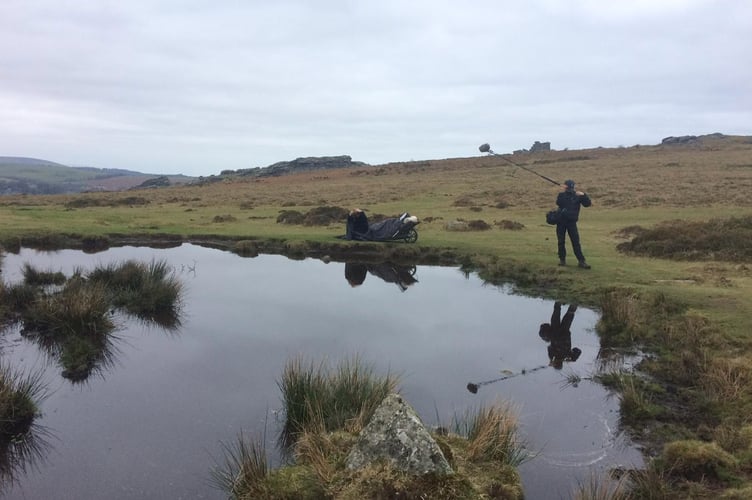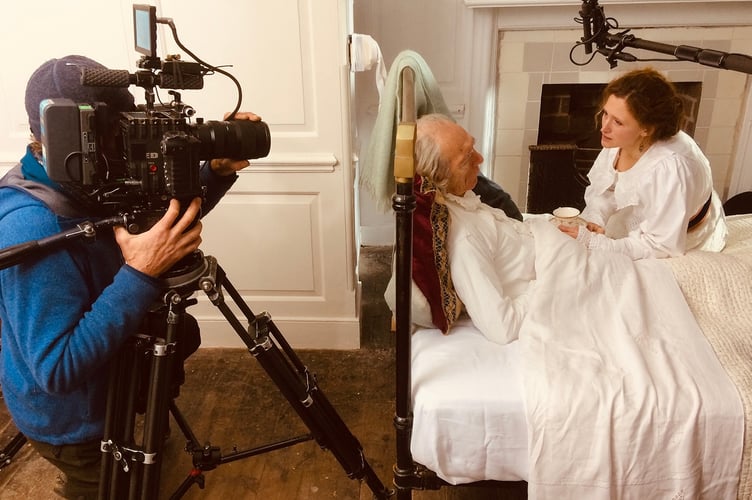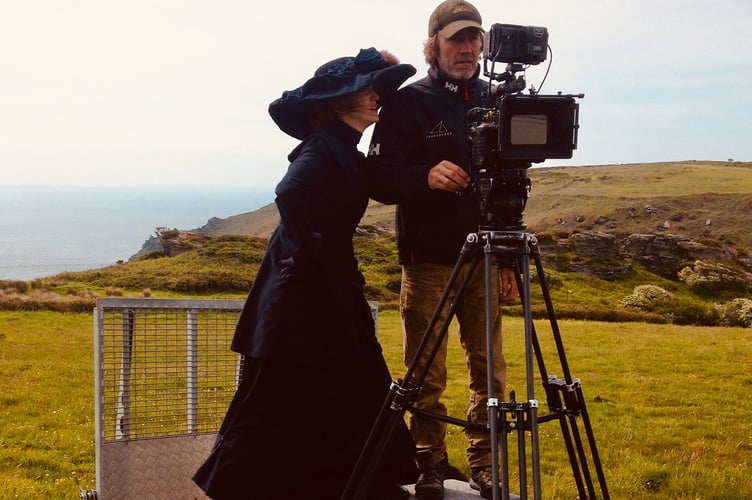The premise of the movie Shalborne is simple enough. Set in 1905, amid the harsh beauty of rural Devon, a woman faces seemingly insurmountable odds to change her life in a patriarchal society.
In a certain way, it’s also a fitting description of the challenges Caroline Corrie faced when she embarked on the journey to make the film seven long years ago.
“Every single stage of it, other than the acting, has been a learning curve. It just ended up being this mammoth thing,” she says about her directorial debut.
If that wasn’t enough, she was also the film’s producer, script writer and lead actor, playing the role of Helen Barlett, a woman who flees from the clutches of a cruel husband in Edwardian England.

In the film, Helen is forced to trek across Dartmoor with her ageing father on a cart. She then meets Lord Shalborne, a man who offers her temporary shelter on his estate - and a promise of something else. But her husband Lord Bartlett’s reach is long and Helen soon becomes an unwitting pawn in a game involving Shalborne, who betrays her to save his family home.
If it sounds like a cautionary tale, Ms Corrie’s experience on set was somewhat different, underpinning the view that relationships are often infinitely more nuanced and complex.

“Ironically, having sort of set out to write a film about women and to be really pro-women, supporting mothers in their careers, as I was hoping to do, I ended up doing the whole thing mostly with men, who were really brilliantly supportive, including my husband who was on every shoot!”
Despite being made on a shoestring budget - she wouldn’t reveal exactly how much it cost to produce, except to say it was “definitely under £250,000”, when £3 million is considered the norm for an independent film these days – Shalborne is quite lavish, with expansive, well-lit shots that were filmed in key Devon locations, including Dartmoor and the Salcombe Estuary.
“There’s this incredible landscape that’s sort of freeing but quite daunting, because it's so huge. Equally, it’s full of possibilities. The power of nature affects you internally. That was a big part of the inspiration,” says Corrie, who lives in Thurlestone.
If Shalborne sounds a bit like it came out of the Merchant Ivory stable, it’s no coincidence, as the movie company, best known for The Remains of the Day, is cited as one of Corrie’s influences.

Among the challenges she faced as director was having to adapt to her technical crew’s other pressing commitments – such as waiting for a rare species of tree frog to defrost in Canada. As you do.
She also had to consider the weather, lockdowns and that “babies were born” and “people moved house”.
The struggle may have been worth the while, as Shalborne won Best Foreign Feature in Toronto at the Female Eye Film Festival in the summer.
“The Canadian audience absolutely loved it. They were a very multicultural mix and diverse range of ages, which really surprised me, because I thought period drama about an Edwardian woman probably would appeal to a certain age group, but everyone found something that they connected to in it,” she enthuses.
One of the film’s positive messages transcends its historic setting, and is as relevant now as it was in the stuffy social confines of early 20th Century England.
“If you're going to make anything happen, you've got to find the courage within yourself to make that happen. For women at that time, it was all about the men around them. On a wider universal scale, Helen was sort of a metaphor for anyone in that position of oppression, and you either just put up with it, or you do something about it. But that has to come from inside of you.”
Corrie started out in the industry as an actor, heading her own theatre company for a while as well as doing TV. In 2008, she got a part in the acclaimed HBO mini-series John Adams, acting alongside the likes of Paul Giamatti, Laura Linney and Stephen Dillane.
Personal circumstances eventually forced her to review her life, however.
“I got married and had children. It's a big thing in our profession, particularly because it's so competitive. I know a lot of acting mothers who really struggle, and who work with older, very successful acting women who have very much decided that they’re married to their profession,” she reveals.
She feels no regrets. In any case, readjusting her priorities helped pave the way for a new career in the industry, which also gave her a new perspective on the profession, she says.
“When you're an actor, you do your few days on set, and then you're gone. Whereas (making) a film, you can have forever, and I can use it as a calling card.
“So even if it takes me 20 years, I'd rather be focused on trying to invest in what I really care about than just sort of dreaming and never actually doing anything about it. I didn't know if I would finish Shalborne or if it was achievable, but I just knew that if I kept doing the next bit as best as I could it would work itself out.”
It begs the question, what next?
“The next project will be set in the 1970s. I want to create a world in which a melting pot of cultures and political views come together.”
If Shalborne proved to be a steep learning curve, at least it also taught her how best to avoid the pitfalls of making another film.
“I've built a model that really worked, (but) because so many people gave their time on Shalborne, I don't think I could ask for the same degree of generosity from them, time-wise. So I do need to raise some money.”
Shalborne will be screened at the Dartington Barn Cinema (UK premiere) on October 26 with a Q&A session with Caroline Corrie afterwards, with later screenings in Merlin cinemas in Tiverton and Kingsbridge on November 4-7.



